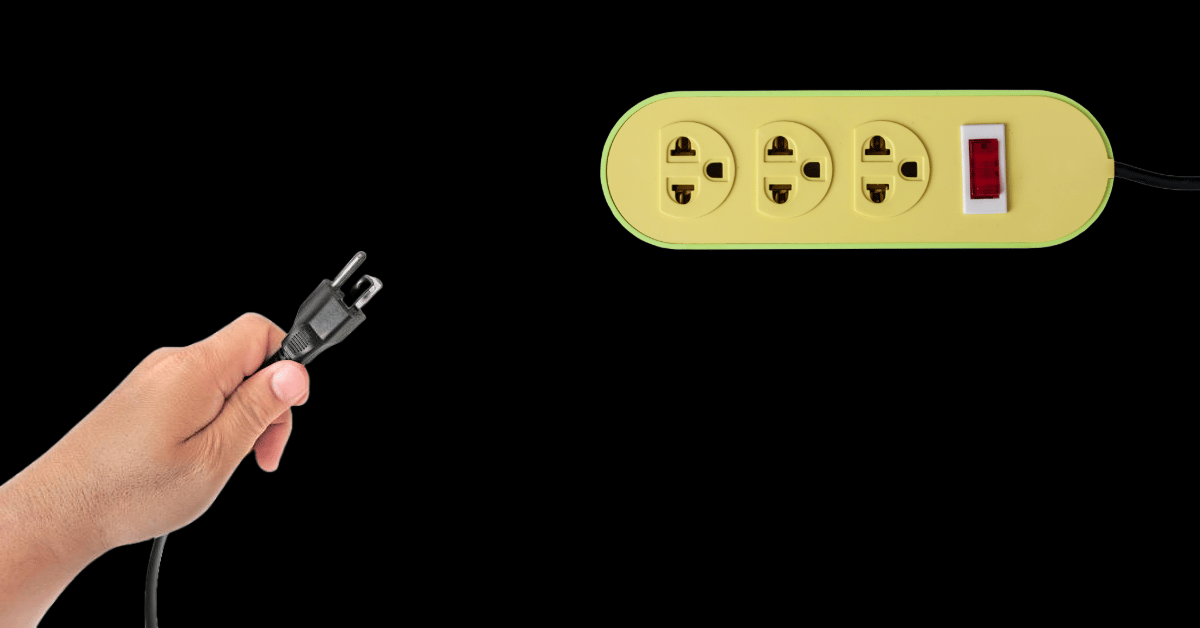
POV: You've got 1 hour with our team of social media strategists.
Get nerdy with us
Forget small talk. We prefer big ideas, with a drink in hand of course.
Lectures After Dark is part classroom, part post-work hangout for marketers who like their insights served with wine, from some of the best academics in Auckland city. If you’re down for a thought provoking talk, bring your questions, ideas, and mid-week existential dread to 43 Ponsonby Road. We’ll bring the good vibes.
23 Oct | 6-7:30pm | $25 (includes your first drink!)
WHAT’S HAPPENING IN MARKETING TODAY?
Discord gets hacked, Nintendo sues Reddit moderator & Maybe AI won’t kill all creativity

Whoopsie. Discord says 70,000 users may have had their government IDs leaked.
The breach is being called “every user’s worst nightmare.” It's impacting user data like selfies, email addresses, phone numbers, where the user lives and ID documents uploaded as part of the app’s verification process. It really doesn’t get any worse than this, except for the fact that the hack is an attempt to extort Discord.
“This is about to get really ugly” the hackers threatened on a Telegram channel on Wednesday, right before posting a screenshot of the size of the stolen data: 1.5 terabytes. Yikes.
The hackers then started posting the user data. This included literal selfies of users holding up their identity documents for verification purposes. They also shared a spreadsheet of 1,000 users’ email addresses and usernames. Scary stuff.
Nintendo sues Reddit mod for $4.5M.
This is news to me, but apparently, on Reddit there is a “bustling community” completely dedicated to pirating games on the Nintendo Switch. The Subreddit encourages fans to support developers financially. However, it also provides the exact resources on how to illicitly obtain games for the Switch.
And Nintendo said not todayyyyy, satan. The Japanese company has filed a motion against one particular community leader, James "Archbox" Williams, who copied, distributed, and promoted Nintendo Switch piracy to the audience, slapping him with a whopping $4.5 mil in damages.
"Nintendo has elected not to seek statutory damages for Williams’ DMCA anti-trafficking violations, even though such damages could be several million dollars," the filing reads. Nintendo basically told him he’s lucky they went easy on him.
Maybe the future of AI isn’t slop???
Most AI “filmmakers” are busy churning out spaghetti-slurping celebs and Bigfoot vlogs. But Josh Kerrigan is out here proving the medium isn’t doomed to slop. His project Neural Viz is an absolutely insane mockumentary universe of alien civilisations and existential oddities. And it shows what happens when storytelling still leads the tech, not the other way around. I repeat, not the other way around.
Kerrigan writes, storyboards, and performs everything himself, using AI like a film crew, not a replacement. He doesn’t chase realism at all. Instead, he leans into AI’s quirks, making its glitches part of the lore. In a landscape obsessed with automation, Neural Viz is a rare argument for artistry. It's proof that AI can amplify imagination instead of erasing it. Just in case you needed a reminder that the future isn’t all doom, it’s just getting weirder, and I’m all for that.
-Sophie Randell, Writer
DEEP DIVE
Reputation is the new ROI

Picture this: you’re a brand manager, quadruple shot latte in hand, doomscrolling through your brand's mentions on social.
And boom, somewhere between the next trending song and think piece, your campaign, logo, and product are all being reinterpreted, misquoted, and memed into oblivion.
One side’s calling you brave. The other, brainwashed. And somewhere, your CFO has the cheek to ask if any of this outrage is “driving conversion.”
This is the modern branding landscape as we know it—part marketing plan, part freaking minefield.
One misstep, and boom, baby.
Every post is a potential scandal. Every influencer is a political statement. Every colour palette can be a provocation. We’re no longer selling jeans or beer or even fkn breakfast anymore; we’re selling alignment, morality, and meaning, whether we like it or not.
Reputation used to be something brands could manage. Now it’s something literally everyone else controls.
This is what I mean when I say reputation has replaced ROI.
ROI was built for a slower world, one where campaigns lasted months and consumer sentiment moved at the speed of Nielsen data. But we don’t live there anymore.
Today, your reputation refreshes in real time. One creator’s critique, one Reddit thread, one slightly too earnest Pride post, and boom, your quarterly strategy is obsolete. Because right now, the market doesn’t trade in money first. It trades in meaning.
Bud Light, Cracker Barrel, and American Eagle all learned that the hard way.
We all remember when Bud Light unintentionally turned marketing into moral warfare. This was kind of the start of the recent brands-as-ammo in the never ending left-right tug of war.
The collaboration with Dylan Mulvaney was supposed to be a small influencer activation, a moment of cultural relevance, maybe even progressiveness. Instead, it became the defining case study in what happens when your brand gets caught in America’s political crossfire. Spoiler: you make a whole mess.
The partnership sparked a conservative boycott, a progressive backlash against the brand’s backpedalling, and months of memes, mockery, and moral panic. Bud Light totally lost control of its narrative. And the craziest part is that the product didn’t change. The beer didn’t taste any different, but the meaning of drinking one totally did.
That’s what modern reputation looks like: a battle over who gets to define what your brand stands for.
The same happened with Cracker Barrel. The poor restaurant chain didn’t ask to join the culture war. A logo refresh should’ve been the most harmless thing imaginable—a little flatter, a little sleeker, a little more 2025.
But the internet saw it differently. Within hours, conservative commentators were calling it “woke,” “soulless,” and “the death of Americana.” Entire threads popped up accusing the chain of abandoning its roots. Even Trump weighed in, lamenting the fall of the good old Cracker Barrel he once knew.
All this… over a font.
Cracker Barrel didn’t launch a social justice campaign or paint rainbows all over the place. They didn’t change their menu. They just updated a logo, and somehow, that became a referendum on cultural identity.
It’s the perfect example of how fragile brand perception has become. A freaking design choice became a political statement. In today’s polarised landscape, even a serif can start a civil war.
And that leads us to the latest in the saga, American Eagle.
Sydney Sweeney was supposedly a safe bet for American Eagle. She's Gen Z’s blonde bombshell sweetheart, Euphoria-famous, maybe a little edgy, sure, but still the picture of the American Girl Next Door. Perfect, right?
Wrong.
Celebrity isn’t apolitical anymore. Every famous face carries a reputation portfolio of their own: family politics, brand partnerships, fandom allegiances.
So when Sweeney’s on-screen script (and off-screen associations) rubbed parts of the internet the wrong way, American Eagle’s campaign got caught in the crossfire. A denim ad turned into a referendum on class, privilege, and performative coolness.
It wasn’t just that the creative was bad. It’s that celebrity culture has become proxy politics, and brands keep forgetting that.
Every one of these brands proves that reputation is no longer a soft metric. It’s the market itself.
Visibility = volatility. The bigger your platform, the smaller your margin for misinterpretation.
Values = currency. Consumers buy what aligns with their worldview or boycott it if it doesn’t. Simple as that.
Virality = volatility squared. The faster something spreads, the faster it spirals.
Reputation used to live in PR. Now it lives in public discourse. It’s co-authored by consumers, creators, and comment sections in real time.
So, if we can’t measure "return" the old way, maybe it’s time to rewrite what the “R” even stands for.
Return on Integrity: Are your actions consistent with your stated values?
Return on Intention: Are your moves strategic, or reactive to outrage?
Return on Interaction: What’s the quality of your relationship with your audience, not just the quantity of your impressions?
Return on Identification: Do people see themselves in your brand, and want to be seen with it?
These aren’t metrics for dashboards. They’re measures of trust.
The modern marketer’s nightmare isn’t being ignored. It’s being interpreted.
Because in the economy of perception, you’re no longer selling a product; you’re selling a worldview. Every campaign, every collab, every piece of content is a referendum on your place in the cultural spectrum. And that’s a scary place to be.
When outrage compounds faster than interest, reputation isn’t just part of your ROI. It is your ROI.
-Sophie Randell, Writer
TREND PLUG
Stop talking dirty to me

Today's trending audio comes from Taylor Swift’s new album The Life of a Showgirl, specifically from her song "Actually Romantic."
In this part of the track, Taylor delivers the line “stop talking dirty to me” in a playful, teasing tone. Naturally, TikTok ran with it and clipped the viral phrase.
Creators are using the sound to react to things that technically aren’t flirty, but totally feel like they are. Like when your friends ask if you want to grab a coffee and go shopping, going for matcha then thrifting, or even when you get the notification saying your package is out for delivery.
How you can jump on this trend:
Use the viral audio and film yourself reacting dramatically to something that’s not meant to be seductive. Add on screen text describing the “flirty” statement, then lipsync along, “Stop talking dirty to me”.
A few ideas to get you started:
When my boss says they might cancel the meeting
When I get a 50% off email from my favourite brand
When my coworkers ask if I want to go out to buy lunch
-Bella Vlasich, Intern
FOR THE GROUP CHAT
😲Yap’s funniest home videos: Good thing Captain America was here
❤How wholesome: SantoTheLegend
😊Soooo satisfying: The perfect peel
🍝What you should make for dinner tonight: Creamy glazed lamb chops
ASK THE EDITOR

I've just started a financial consulting business. How do I start building a network of potential clients on socials? -Amir
Hey Amir!
As you're a service-based business, my advice is to start with LinkedIn! The platform is a goldmine for connecting with potential clients. Create as much content as you can so you start showing up on people's feeds.
At the same time, begin building your network. Use the LinkedIn search bar to find people who would be an ideal client for you. Create a spreadsheet with information like their name, job title, company, and then link their profile. Once you've got this database, use it to find and interact with these people's posts on a regular basis.
Make sure your comments are thoughtful, not just "nice post" or something generic. Over time, they will begin noticing you, and hopefully interacting with your content, too. It will take a few months for you to grow a real presence on LinkedIn. But being super intentional about who you engage with will help you connect with the right people much faster.
- Charlotte Ellis, Editor ♡
